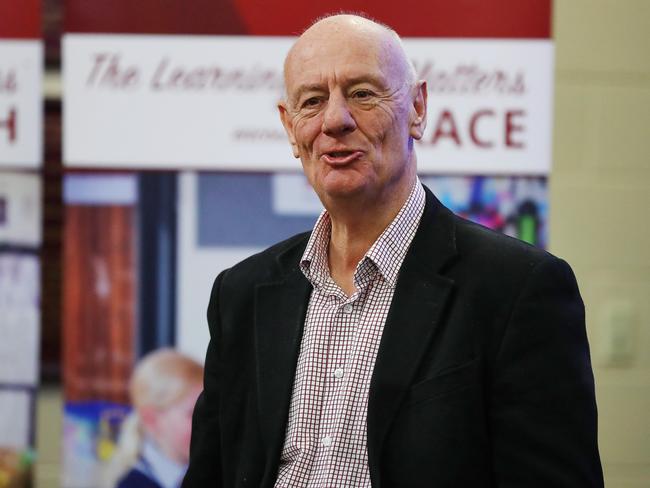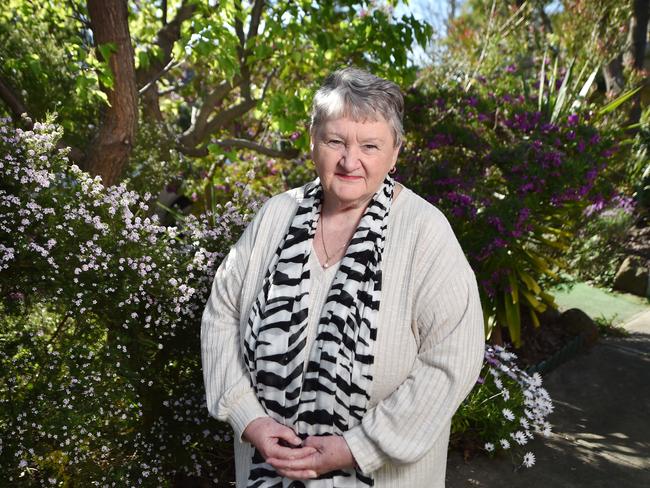$3.24bn lost: Queensland’s worst poker machine hotspots revealed
A record-breaking $3.24 billion was lost on Queensland pub and club pokies last financial year, with some regions copping the brunt more than others. See how your area compares.
QLD News
Don't miss out on the headlines from QLD News. Followed categories will be added to My News.
A record-breaking $3.24 billion was lost on Queensland pub and club pokies last financial year, with Brisbane and Gold Coast punters taking the biggest hits.
Data from Liquor, Gaming and Fair Trading reveals about $693 million was lost in the Brisbane local government area alone, up 30 per cent on 2018-19, before the pandemic.
It was followed by the Gold Coast LGA at $445 million, up 32 per cent.
The startling state figure – which does not include casino machines – was almost $815 million higher than before Covid, and comes despite there being 1677 fewer machines and 75 fewer gaming venues operating across the state.
Alliance for Gambling Reform chief executive Carol Bennett said hoteliers were slowly ditching machines in favour of more family-friendly entertainment as pokie dens had increasingly become culturally and socially unacceptable.
“New and innovative business models are being embraced by many venues which find that they are receiving positive public support,” she said.
“Of course, state governments want to be seen to be reducing poker machine caps but their reliance on pokies revenue has resulted in a slow pace of change.”
A national self exclusion register, BetStop, is set to launch August 21, allowing people to ban themselves from betting and gambling across the country for at least three months and as long as a lifetime.
For people who opt in, wagering providers will be required to close all betting accounts and must not let them place a bet, let them open a new account, or send them marketing messages.

The Alliance’s chief advocate Tim Costello said more needed to be done to address gambling harm on pokies across Australia, calling for the introduction of a universal cashless card for all machines, to minimise losses through set dollar limits and address money laundering through reduced anonymity.
“The cashless card is the big recommendation,” he said.
“When (Julia) Gillard tried to introduce it, (people from the gambling industry) literally marched into her office and said ‘your prime ministership is over if you march on with this reform’.”
Rev Costello also recommended restricted operating hours, restricted advertising, and changes to “deceptive” gaming machine tactics – specifically “losses disguised as wins” with celebratory lights and music, and the illusion of “near misses” in the way the symbols presented on the screen.
“A near miss is complete nonsense (but) it releases dopamine and is highly addictive and deceptive.”
The Queensland Liquor and Gaming data showed the amount of money spent on pokies had continued to increase despite cost of living pressures.

Rev Costello said gambling was “cost of living proof” and always did well in “tough times”.
“It is because you feel hopeless already. You don’t know how you are going to pay the rent or mortgage and the promise of maybe a win at the pokies is hope,” he said.
“We know it particularly targets those feeling hopeless or lonely, and we see that particularly if you are a woman and middle aged.
“You can dress up and go out socially where it’s not strange to be on your own and someone will bring you a coffee and you feel you are experiencing community, but then get into the zone and get addicted.”
In Victoria, he said women made up only four per cent of problem gamblers before the introduction of poker machines in 1992, but this had since jumped to 53 per cent.
“It’s like heroin – unless you get help, you can’t stop.”
Carolyn Crawford had never had so much as a parking ticket before stealing $400,000 from her employer over seven years to fund her gambling addiction.
At age 64, she was sentenced to 18 months jail.
Now 71, she has paid back all the money but has been left with nothing – no property, no superannuation, no inheritance, and nothing to leave her two sons.
Still, Ms Crawford considers herself lucky.
“I can’t believe a little coloured machine has done so much damage to my brain,” she said.
“Some people have taken their lives because of them.”
Two-thirds of the women in prison with her were there because of gambling, according to Ms Crawford, and many were disowned by their families.
“That’s sad because it’s not the person, it’s the brain being taken over by this horrible predatory industry,” she said.
“I am one of the lucky ones because I still have my family.”

Ms Crawford’s habit began when her husband left her and a man she was interested in romantically began inviting her to play pokies.
She was lonely and wanted to spend time with him but was soon addicted to the dopamine hit that came with the colours, lights, music and spins of the machines.
“Once I was addicted, time didn’t matter, winning didn’t matter – it was about being in front of that machine,” she said.
“I used to get p*ssed off when I got free spins because I wasn’t the one pushing the button.
“I went most days and most weekends and wouldn’t wake up thinking ‘How is my dad, who was dying with cancer?’ or ‘How are my grandkids?’. I’d be thinking, ‘Where am I going tonight?’.
“In my mind, addiction was a needle in your arm or something you swallowed, not a light in front of your eyes.
“It’s like heroin – unless you get help, you can’t stop.”
Ms Crawford has been out of prison for about seven years and sworn herself off pokies.
But last month she lapsed for the first time and sat down at a machine.
“I’d had a bad day,” she said.
“Luckily I was on the self-exclusion list and they asked me to leave.”
Originally published as $3.24bn lost: Queensland’s worst poker machine hotspots revealed




